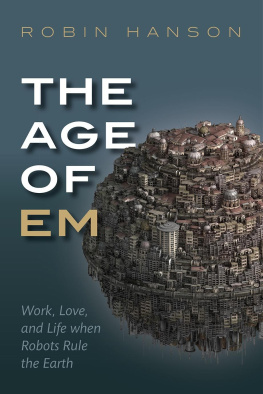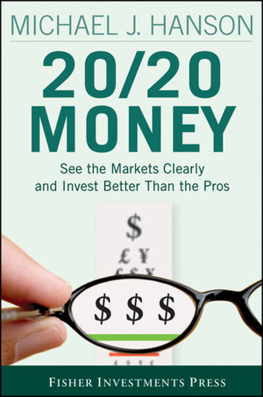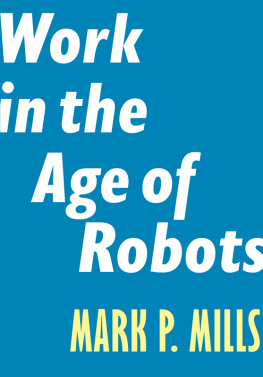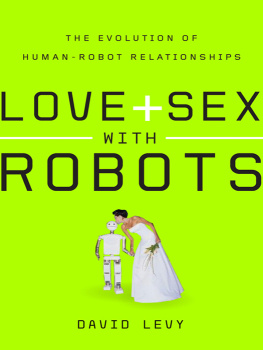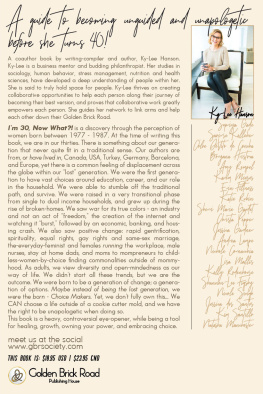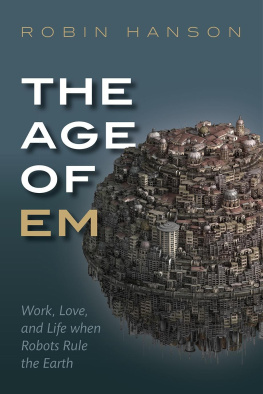Hanson - The age of em work, love and life when robots rule the Earth
Here you can read online Hanson - The age of em work, love and life when robots rule the Earth full text of the book (entire story) in english for free. Download pdf and epub, get meaning, cover and reviews about this ebook. year: 2018, publisher: Oxford University Press, genre: Romance novel. Description of the work, (preface) as well as reviews are available. Best literature library LitArk.com created for fans of good reading and offers a wide selection of genres:
Romance novel
Science fiction
Adventure
Detective
Science
History
Home and family
Prose
Art
Politics
Computer
Non-fiction
Religion
Business
Children
Humor
Choose a favorite category and find really read worthwhile books. Enjoy immersion in the world of imagination, feel the emotions of the characters or learn something new for yourself, make an fascinating discovery.
- Book:The age of em work, love and life when robots rule the Earth
- Author:
- Publisher:Oxford University Press
- Genre:
- Year:2018
- Rating:4 / 5
- Favourites:Add to favourites
- Your mark:
- 80
- 1
- 2
- 3
- 4
- 5
The age of em work, love and life when robots rule the Earth: summary, description and annotation
We offer to read an annotation, description, summary or preface (depends on what the author of the book "The age of em work, love and life when robots rule the Earth" wrote himself). If you haven't found the necessary information about the book — write in the comments, we will try to find it.
The age of em work, love and life when robots rule the Earth — read online for free the complete book (whole text) full work
Below is the text of the book, divided by pages. System saving the place of the last page read, allows you to conveniently read the book "The age of em work, love and life when robots rule the Earth" online for free, without having to search again every time where you left off. Put a bookmark, and you can go to the page where you finished reading at any time.
Font size:
Interval:
Bookmark:
THE AGE OF EM
THE AGE OF
EM
WORK, LOVE, AND LIFE WHEN ROBOTS RULE THE EARTH
ROBIN HANSON


Great Clarendon Street, Oxford, OX2 6DP,
United Kingdom
Oxford University Press is a department of the University of Oxford.
It furthers the Universitys objective of excellence in research, scholarship, and education by publishing worldwide. Oxford is a registered trade mark of Oxford University Press in the UK and in certain other countries
Robin Hanson 2016
The moral rights of the author have been asserted
First Edition published in 2016
Impression: 1
All rights reserved. No part of this publication may be reproduced, stored in a retrieval system, or transmitted, in any form or by any means, without the prior permission in writing of Oxford University Press, or as expressly permitted by law, by licence or under terms agreed with the appropriate reprographics rights organization. Enquiries concerning reproduction outside the scope of the above should be sent to the Rights Department, Oxford University Press, at the address above
You must not circulate this work in any other form and you must impose this same condition on any acquirer
Published in the United States of America by Oxford University Press 198 Madison Avenue, New York, NY 10016, United States of America
British Library Cataloguing in Publication Data
Data available
Library of Congress Control Number: 2015956654
ISBN 9780191069666
Printed in Great Britain by
Clays Ltd, St Ives plc
Links to third party websites are provided by Oxford in good faith and for information only. Oxford disclaims any responsibility for the materials contained in any third party website referenced in this work.
Preface
This book has been many years in the making.
One night in the 1980s, as an awkward 20-something software engineer, I had a vivid dream. I had just read a Science News article on computing image textures, and the accompanying images had looked so real. In my dream, I saw a vast future city, where everyone lived in virtual reality, and I saw one man alone in a small apartment buried deep in the city. Not much happened in my dream, but even so I felt a deep sympathy for this man, and curiosity about his world.
In 1993, I returned to graduate school, this time in economics. (Id studied physics and philosophy of science before.) During my first Christmas break, I rebelled against school pressures by whimsically applying basic economic principles to a common science-fiction scenario: human minds uploaded into computers ().
The techies who dominate science fiction and technology futurism often say that careful analysis can sometimes let us foresee the outlines of future technologies, but not their social consequences. However, I found that simple economic analysis says plenty. I once loved science fiction, but the more Ive learned, the less I can overlook how little of it makes sense; even stories where the physics is mostly right get the economics laughably wrong.
About 15 years ago, at the opening reception of a small interdisciplinary conference, I broke the ice by asking an English professor, Why do you guys hate economists? He answered simply, You know. That sort of thing breaks my heart. I read widely, learn from and contribute to many fields, and see myself more as a scholar in general than an economist in particular.
Eleven years ago I was awarded tenure as an economics professor at George Mason University. I took advantage of tenures freedom to explore whatever topics piqued my interest each week. But I eventually realized that, to have a lasting legacy, I needed to focus on a book. But what topic could draw me in enough to keep all the other fascinating topics at bay? I picked this one.
If the future matters more than the past, because we can influence it, why do we have far more historians than futurists? Many say that this is because we just cant know the future. While we can project social trends, disruptive technologies will change those trends, and no one can say where that will take us. In this book, Ive tried to prove that conventional wisdom wrong, by analyzing in unprecedented breadth and detail the social implications of minds uploaded into computers, a.k.a. brain emulations, or ems for short. While ems are hardly sure to appear, their chances seem high enough to justify substantial analysis.
My priority in this book has been to show just how many reasonable forecasts one can make about such a scenario, if one just applies standard consensus theories from relevant fields. Alas, achieving this priority comes somewhat at the cost of accessibility and readability; this book is dense, and reads more like an encyclopedia than a narrative.
I feel now like a traveler who has spied on a distant land from the safety of nearby hills, never actually meeting any specific person, or hearing specific words. Ive returned home, with much to say, but mostly hungry for human communion. Ive never felt as intellectually isolated or at risk as when writing this book, and I hope my desert days end now, as readers like you join me in discussing The Age of Em.
Acknowledgments
For their comments, I thank Paul Christiano, Peter Twieg, Katja Grace, Carl Shulman, Tyler Cowen, Fabio Rojas, Bonnie Hanson, Luke Muehlhauser, Nikola Danaylov, Bryan Caplan, Michael Abramowicz, Gaverick Matheny, Paul Crowley, Peter McCluskey, Sam Wilson, Chris Hibbert, Thomas Hanson, Daniel Houser, Kaj Sotala, Rong Rong, David Friedman, Michael LaTorra, Ben Goertzel, Steve Omohundro, David Levy, Jim Miller, Mike Halsall, Peggy Jackson, Jan-Erik Strasser, Robert Lecnik, Andrew Hanson, Shannon Friedman, Karl Mattingly, Ken Kittlitz, Teresa Hartnett, Giulio Prisco, David Pearce, Stephen Van Sickle, David Brin, Chris Yung, Adam Gurri, Matthew Graves, Dave Lindbergh, Scott Aaronson, Gary Drescher, Robert Koslover, Don Hanson, Michael Raimondi, William MacAskill, Eli Dourado, David McFadzean, Bruce Brewington, Marc Ringuette, Daniel Miessler, Keith Henson, Garett Jones, Alex Tabarrok, Lee Corbin, Norman Hardy, Charles Zheng, Stuart Armstrong, Vernor Vinge, Ted Goertzel, Mark Lillibridge, Michael Chwe, Olle Hggstrm, Jaan Tallinn, Joshua Fox, Chris Hallquist, Joshua Fox, Kevin Simler, Eric Falkenstein, Lotta Moberg, Ute Shaw, Matt Franklin, Nick Beckstead, Robyn Weaving, Franois Rideau, Eloise Rosen, Peter Voss, Scott Sumner, Phil Goetz, Robert Rush, Donald Prell, Olivia Gonzalez, Bradley Andrews, Keith Adams, Agustin Lebron, Karl Wiberg, Thomas Malone, Will Gordon, Philip Maymin, Henrik Jonsson, Mark Bahner, Adam Lapidus, Tom McKendree, Evelyn Mitchell, Jacek Stopa, Scott Leibrand, Paul Ralley, Anders Sandberg, Eli Lehrer, Michael Klein, Lumifer, Joy Buchanan, Miles Brundage, Harry Beck, Michael Price, Tim Freeman, Vladimir M., David Wolf, Randall Pickett, Zack Davis, Tom Bell, Harry Hawk, Adam Kolber, Dean Menk, Randall Mayes, Karen Maloney, Brian Tomasik, Ramez Naam, John Clark, Robert de Neufville, Richard Bruns, Keith Mansfield, Gordon Worley, Giedrius, Peter Garretson, Christopher Burger, Nithya Sambasivam, Zachary Weinersmith, Luke Somers, Barbara Belle, Jake Selinger, Geoffrey Miller, Arthur Breitman, Martin Wooster, Daniel Boese, Oge Nnadi, Joseph Mela, Diego Caleiro, Daniel Lemire, Emily Perry, Jess Riedel, Jon Perry, Eli Tyre, Daniel Erasmus, Emmanuel Saadia, Erik Brynjolfsson, Anamaria Berea, Niko Zinovii, Matthew Farrell, Diana Fleischman, and Douglas Barrett.
I have received no financial assistance for this book and its related research, other than the freedom that academic tenure has provided me. I deeply thank my GMU colleagues for granting me that unusual privilege.
Next pageFont size:
Interval:
Bookmark:
Similar books «The age of em work, love and life when robots rule the Earth»
Look at similar books to The age of em work, love and life when robots rule the Earth. We have selected literature similar in name and meaning in the hope of providing readers with more options to find new, interesting, not yet read works.
Discussion, reviews of the book The age of em work, love and life when robots rule the Earth and just readers' own opinions. Leave your comments, write what you think about the work, its meaning or the main characters. Specify what exactly you liked and what you didn't like, and why you think so.

